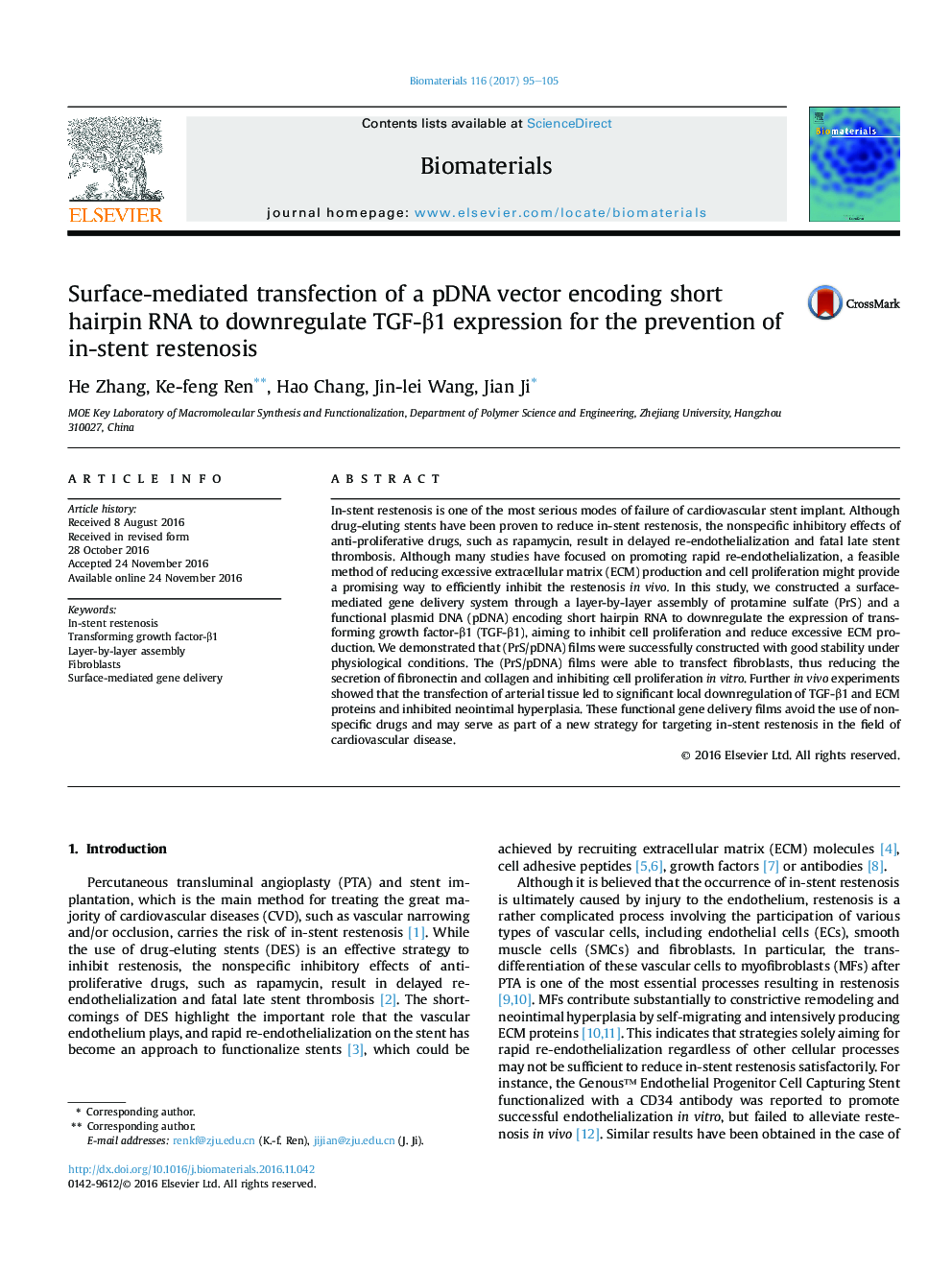| Article ID | Journal | Published Year | Pages | File Type |
|---|---|---|---|---|
| 6450894 | Biomaterials | 2017 | 11 Pages |
In-stent restenosis is one of the most serious modes of failure of cardiovascular stent implant. Although drug-eluting stents have been proven to reduce in-stent restenosis, the nonspecific inhibitory effects of anti-proliferative drugs, such as rapamycin, result in delayed re-endothelialization and fatal late stent thrombosis. Although many studies have focused on promoting rapid re-endothelialization, a feasible method of reducing excessive extracellular matrix (ECM) production and cell proliferation might provide a promising way to efficiently inhibit the restenosis in vivo. In this study, we constructed a surface-mediated gene delivery system through a layer-by-layer assembly of protamine sulfate (PrS) and a functional plasmid DNA (pDNA) encoding short hairpin RNA to downregulate the expression of transforming growth factor-β1 (TGF-β1), aiming to inhibit cell proliferation and reduce excessive ECM production. We demonstrated that (PrS/pDNA) films were successfully constructed with good stability under physiological conditions. The (PrS/pDNA) films were able to transfect fibroblasts, thus reducing the secretion of fibronectin and collagen and inhibiting cell proliferation in vitro. Further in vivo experiments showed that the transfection of arterial tissue led to significant local downregulation of TGF-β1 and ECM proteins and inhibited neointimal hyperplasia. These functional gene delivery films avoid the use of non-specific drugs and may serve as part of a new strategy for targeting in-stent restenosis in the field of cardiovascular disease.
